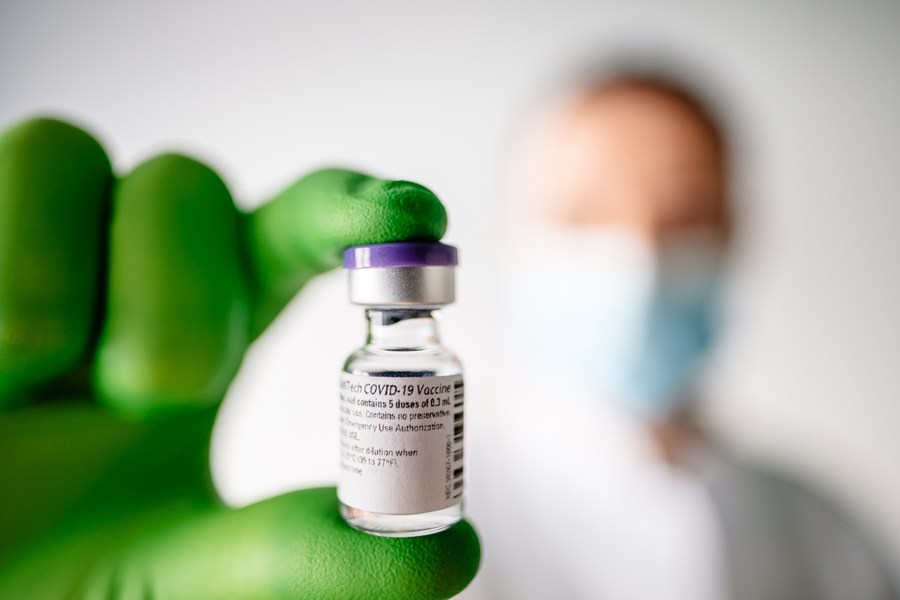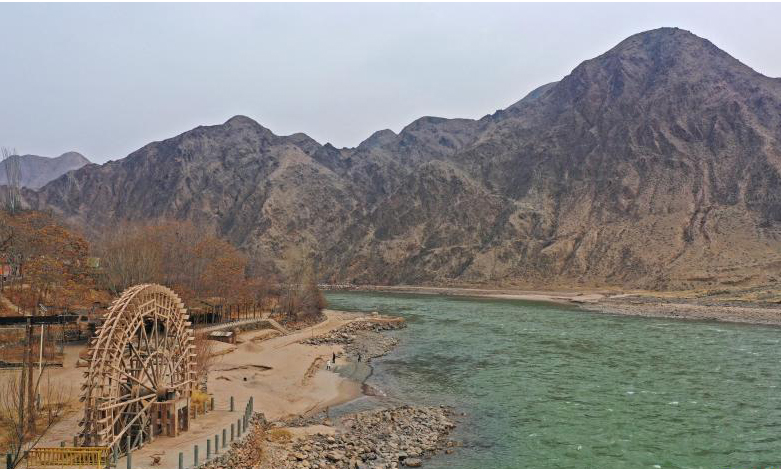9 more women in Japan experience severe anaphylaxis after receiving Pfizer jab: health ministry

Undated photo shows a vial of Pfizer/BioNTech COVID-19 vaccine. (BioNTech/Handout via Xinhua)
TOKYO, March 10 (Xinhua) -- Japan's health ministry has reported that there have been nine new incidents of women experiencing severe allergic reactions after receiving a coronavirus vaccine, local media reported Wednesday.
According to the health ministry and local accounts, medical facilities reported that female medical workers aged in their 20s to 50s experienced anaphylaxis after receiving the coronavirus vaccine developed by U.S. pharmaceutical giant Pfizer and its German partner BioNTech SE.
The ministry here said the women who experienced anaphylaxis received the Pfizer jabs on Monday.
Despite displaying severe reactions, the ministry said they have all since recovered.
An investigation led by a panel of experts at the health ministry here has been charged with investigating whether the Pfizer jabs were responsible for sending the health workers into anaphylactic shock.
The ministry and local media reported that as of 5:00 p.m. on Tuesday, a total of 107,558 medical workers had been vaccinated, with anaphylaxis reported in 17 women.
Japan's public broadcaster NHK said the ratio of those going into anaphylactic shock after receiving the Pfizer jab was about one in 6,300 people, which equates to about 0.00015 percent.
Anaphylaxis is a potentially lethal and acute allergic reaction to an antigen to which the body has become hypersensitive.
The symptoms include, but are not limited to, coughing, wheezing, tightness in the chest, general pain, trouble breathing, rapid heartbeat, swollen or itchy throat, tightness in the throat, vomiting, diarrhea and a weak pulse.
When someone goes into a potentially life-threatening anaphylactic shock, which among the symptoms will almost certainly include their blood pressure suddenly dropping, a narrowing of their airways, and the blocking of normal breathing, they need immediate emergency medical attention.
If the reaction is not treated immediately, it can result in serious complications and can be fatal.
In addition, according to health experts, as many as one out of every five people may have a second anaphylactic reaction within 12 hours of the first. This is known as biphasic anaphylaxis.
Photos
Related Stories
- Russia's Sputnik-V vaccine is a result of 20 years' research
- China’s cooperation on COVID-19 has no geopolitical purposes
- Uganda receives first batch of COVID-19 vaccines through COVAX
- Chinese-made vaccine increasingly trusted in Hungary amid third wave of pandemic
- Cuba's Soberana 02 COVID-19 vaccine starts phase 3 trials
- Ghana to see dramatic drop in COVID-19 cases with vaccination roll-out: official
- Over 5 mln get COVID-19 vaccine in Beijing
- World leaders receive COVID-19 vaccine to dispel doubts, boost confidence
- 1st COVID-19 vaccinations using doses provided by COVAX begin in Africa: WHO
- U.S. starts rolling out newly-approved Johnson & Johnson's COVID-19 vaccine
Copyright © 2021 People's Daily Online All Rights Reserved










